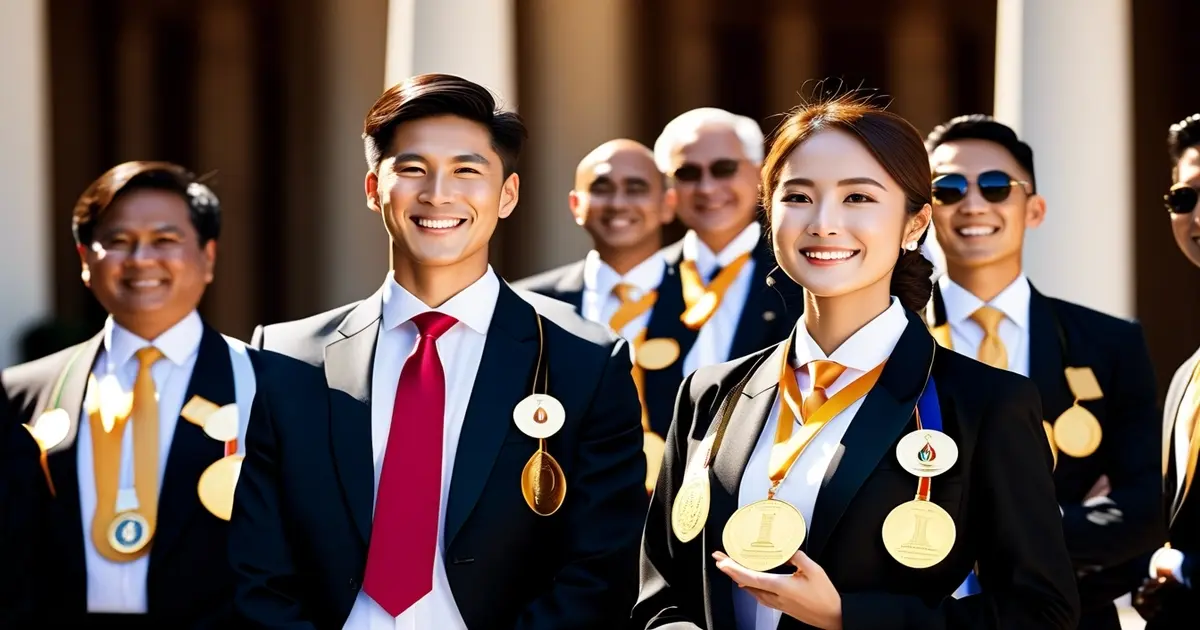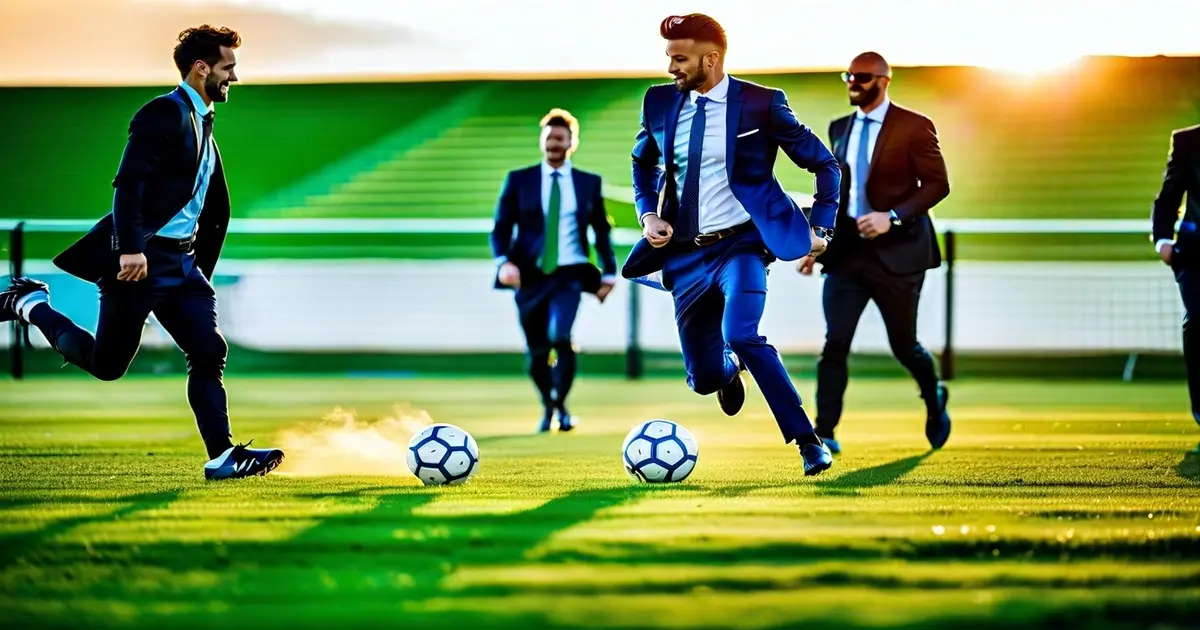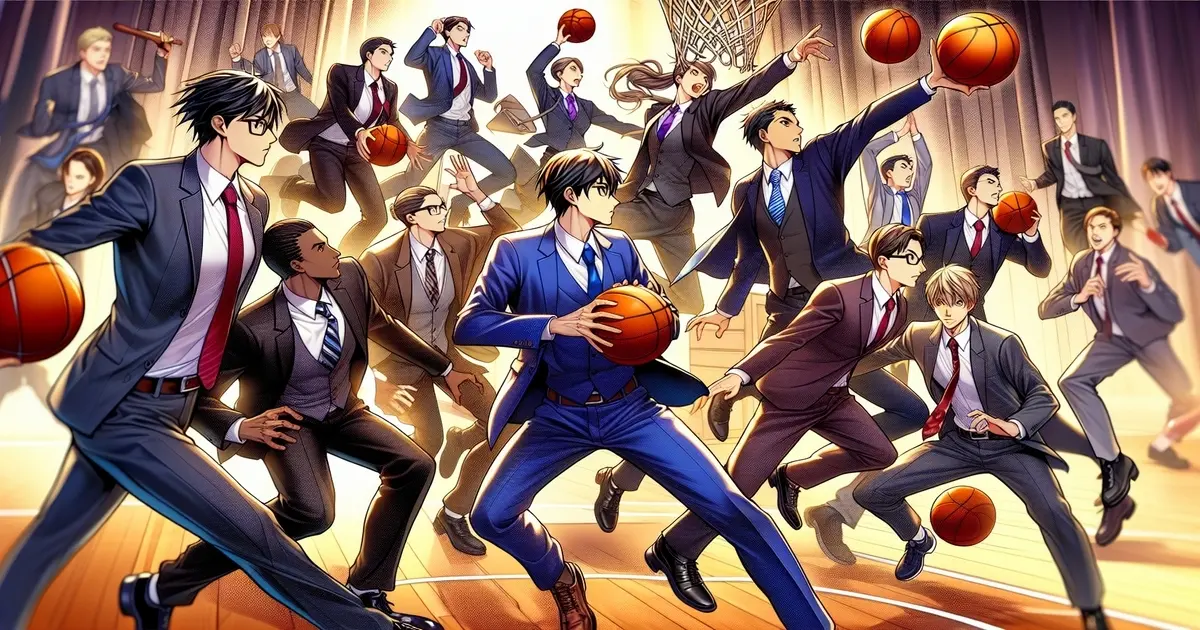Sports Lawyer: Steps to Become One and Career Outlook
Have you ever wondered what stands between a promising athlete's career and the legal hurdles that could derail it? A sports attorney, often supported by sports law attorneys and other sports law practitioners, including a sports agent, plays a crucial role. Enter the realm of sports law, where the need for the expertise of a sports lawyer becomes invaluable.
These legal eagles, with a need for understanding sports regulations, navigate the complex intersections of law and athletics as both sports agents and lawyers, ensuring fair play off the field and protecting the rights and careers of those who entertain us on it while maintaining a high lawyer rating.
From negotiating contracts to defending against allegations, sports lawyers are the unsung heroes behind the scenes, ensuring the game goes smoothly for everyone involved. If you're intrigued by the legal side of sports or considering a career in this dynamic field, understanding the role of a sports lawyer is your starting point.
Table Of Contents
Key Takeaways
- Understanding the difference between sports lawyers and agents is crucial for anyone interested in a career in sports law; lawyers focus on legal representation, while agents handle contract negotiations and endorsements.
- Becoming a sports lawyer involves a dedicated education journey, starting with an undergraduate degree followed by law school and, often, additional courses or certifications in sports law.
- Gaining practical experience through internships or clerkships in sports law firms or organizations is essential for a successful career in this field.
- Critical skills for success as a sports lawyer include strong negotiation abilities, a deep understanding of sports regulations and contracts, and excellent communication skills.
- Specializing in a specific area of sports law can enhance a lawyer's career prospects by making them the go-to expert in niche segments of the industry.
- Building strong client relationships is fundamental in sports law, as trust, reputation, and lawyer rating are significant factors that attract and retain clients in this competitive field.
Sports Lawyers vs Agents
Legal Background
Sports lawyers and sports agents serve distinct roles within the sports industry, each requiring a unique set of skills and educational background. Sports lawyers, or sports attorneys, are licensed legal professionals specializing in sports law. This specialization demands a deep understanding of various legal fields such as labor, contract, antitrust law, privacy rights, and defamation, which are integral to sports law. The foundation of sports law in the United States, formed during the 1st International Congress on Sports Law and further established by organizations like the International Association of Sports Law (IASL), highlights its complexity and recent development.
On the other hand, sports agents may not require a legal degree but often possess strong sports management, marketing, or business backgrounds. They focus on career management for professional athletes rather than the legal intricacies of sports law. Despite this distinction, a comprehensive grasp of contracts, sports regulations, and negotiation tactics is crucial for both professions, including those of a sports agent with a high lawyer rating.
Role Distinction
The primary role of a sports lawyer involves advising and representing athletes or sports organizations in legal matters. This includes drafting contracts, handling arbitration cases, dealing with doping allegations and match-fixing issues, and navigating sports broadcasting contracts. Their expertise in sports law and lawyer rating ensures that athletes' rights are protected under the law and that any agreements made are in their best interest.
Agents concentrate on maximizing a sports athlete's market potential, including their lawyer rating and managing their public image. They negotiate contracts for the athletes they represent, seeking the best possible terms regarding salary, endorsements, and other sports benefits, considering lawyer ratings. While agents play a critical role in an athlete's financial success and brand building, they rely on sports lawyers to handle legal disputes and provide counsel on complex legal agreements.
Integrated Expertise
For effective representation of professional athletes, sports lawyers must understand the responsibilities that traditionally fall under sports agents' purview. This integrated expertise enables them to offer comprehensive advice that covers legal protection and career advancement in the sport, including lawyer rating. The lines between these two professions blur as the sports industry evolves with increased media scrutiny and player-agent rise. However, their collaboration remains vital for navigating the competitive landscape of professional sports.
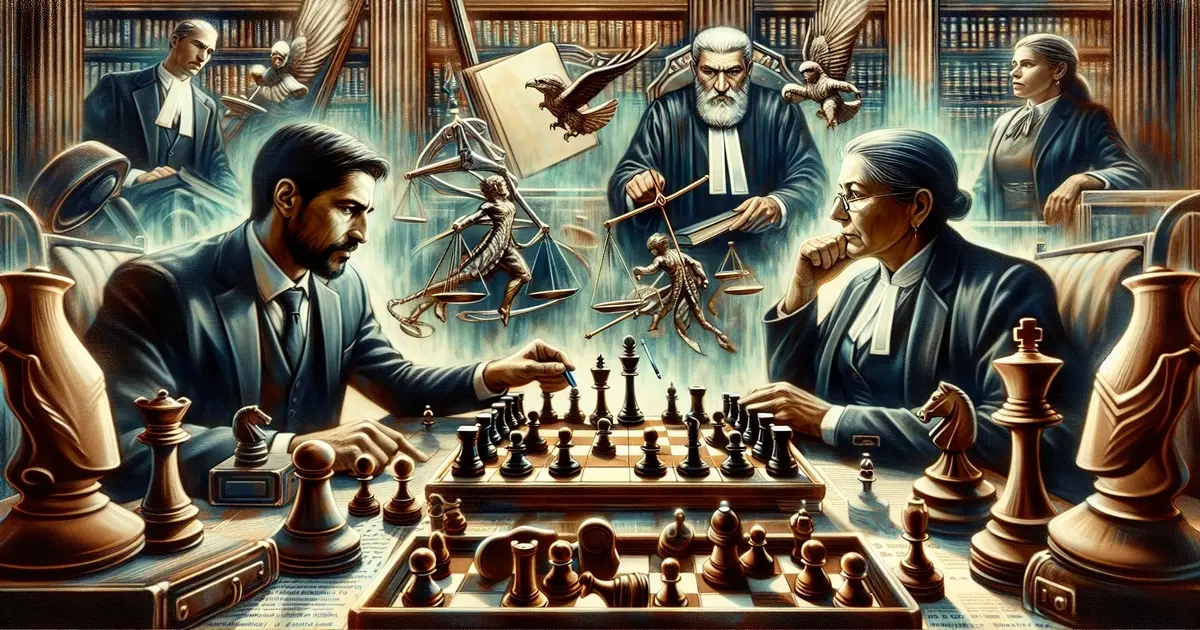
Becoming a Sports Lawyer
Education Path
For aspiring sports lawyers, the journey begins with a solid educational foundation. The first step is a bachelor's degree, followed by obtaining a sports law degree from an accredited law school.
During law school, students should focus on courses related to sports law and regulations. This specialization prepares them for the unique challenges in the sports law field, including understanding lawyer rating systems. Students must excel academically and seek out scholarship information to support their studies.
Bar Examination
After law school, graduates must pass the bar exam in their respective state to practice legally. The bar is a rigorous assessment of knowledge and ethics. Sports law program graduates should be well-versed in general legal principles and specific sports laws.
Passing the bar allows these new lawyers to enter the legal career path within the sports industry officially.
Certifications and Experience
Gaining practical experience is vital for law school graduates. Internships or clerkships at premier sports law practices offer invaluable insights. They provide hands-on experience with significant sports arbitrations and dealings with professional sports organizations.
Many sports lawyers also pursue additional certifications specific to sports law. These certifications can enhance a lawyer's credentials and expertise in navigating sports regulations.
Professional Development
Joining professional associations related to sports law is a strategic move for any experienced sports lawyer. These sports associations offer networking opportunities, continuing education programs, and access to the latest industry trends.
They also serve as a platform for sharing knowledge and experiences among peers, further enriching a lawyer's understanding of the sports law industry.
Education Journey
Law School
Students who become sports lawyers must navigate a rigorous three-year law school curriculum. This journey begins with foundational contracts, intellectual property, negotiations, and litigation courses. These subjects are crucial as they lay the groundwork for understanding the complex legal issues in the sports industry.
In their first year, students tackle core subjects that form the bedrock of legal education. By the second and third years, electives become pivotal. Here, the focus shifts towards specialized courses directly relevant to sports law. These include topics on athlete representation, sports organizations, and the legal aspects of sports marketing and sponsorships.
Specialized Courses
To stand out in the field, students should consider taking specialized courses or electives related to sports law. Many law schools offer classes that delve into specific areas, such as doping regulations, international sports law, and the governance of sports bodies.
These courses provide a deeper understanding of sports laws and help build a network within the industry. Engaging with professors and peers interested in sports law opens doors to internships and job opportunities after graduation.
Certification and MCLE
Passing the bar exam is the next major step. However, becoming a successful sports lawyer goes beyond this achievement. The Multistate Professional Responsibility Examination (MPRE) is also a requirement. It tests candidates on professional conduct and ensures they meet ethical standards.
Continuing education plays a vital role in a lawyer's career. Earning Mandatory Continuing Legal Education (MCLE) credits is essential for keeping up-to-date with changes in the law. Sports lawyers should focus on MCLE opportunities related to entertainment, media, and sports law to stay ahead.
Gaining Experience
Internships
Internships provide invaluable real-world experience. They bridge the gap between academic learning and practical application. Securing an internship with a sports team, league, or dedicated sports law firm offers a unique vantage point into the intricacies of sports law.
These opportunities deepen one's understanding of legal issues within sports and facilitate networking. Building relationships during an internship can lead to job offers or mentorship opportunities. It's crucial to approach these experiences eagerly and openly to learn.
Volunteering
Volunteering at sports organizations or events is another pathway to gain relevant experience. This avenue allows aspiring sports lawyers to observe the operational aspects of the sports industry firsthand.
Individuals can make meaningful contributions by offering their legal expertise or general assistance in the sports sector while enhancing their understanding. Volunteering showcases one's commitment to the field and can significantly bolster a resume.
Moot Court
Participation in moot court competitions sharpens legal advocacy skills. These contests simulate court proceedings, providing participants with a platform to argue hypothetical cases related to sports law.
Engaging in moot court competitions enhances critical thinking and public speaking abilities. It also elevates one's profile in the legal community, making them more attractive to potential employers.
Writing and Research
Contributing articles to sports law journals or blogs is an excellent way to demonstrate expertise. Writing on relevant topics improves research and writing skills and increases visibility within the legal community.
Through publication, individuals can share insights and advice on current issues in sports law. This activity positions them as knowledgeable professionals in the sports field.
Skills for Success
Legal Knowledge
Mastering legal knowledge is foundational for any sports lawyer. This includes a deep understanding of contracts, torts, and intellectual property rights as they apply to the sports industry.
Sports lawyers must navigate complex legal landscapes, often unique to the sports sector. They draft and review contracts, protect intellectual property, and resolve disputes in the sports industry. These tasks demand a solid legal education and continuous learning to stay abreast of new laws and regulations.
Negotiation Skills
Negotiation skills are paramount. Sports lawyers negotiate contracts, sponsorship deals, and settlement agreements. They must be adept at finding mutually beneficial solutions while advocating fiercely for their clients' interests.
Effective negotiation requires preparation, strategy, and understanding of the opposing party's needs and goals. It's a delicate balance between assertiveness and diplomacy, aiming for outcomes that favor their clients without burning bridges.
Professional Ethics
Understanding and upholding professional ethics are crucial in maintaining the trust and respect of clients and peers. Sports lawyers often deal with sensitive information and high-stakes situations where ethical dilemmas may arise.
They must navigate these challenges with integrity, ensuring confidentiality, avoiding conflicts of interest, and adhering to the highest standards of legal practice. This commitment to ethics safeguards their reputation and fosters lasting client relationships.
Communication Skills
Strong communication and interpersonal skills are vital for sports lawyers. They explain complex legal concepts in understandable terms, negotiate deals, and present cases effectively. Clear communication is essential whether drafting a contract or arguing in court.
These skills extend beyond verbal communication to include writing ability. Contracts, legal briefs, and correspondence must be concise, persuasive, and accessible to ambiguity.
Staying Updated
The sports industry is dynamic, with constantly evolving laws and regulations. Sports lawyers must stay updated on these changes to provide accurate advice and strategic planning.
They follow legal developments affecting sports globally, including technological advancements, labor law changes, and governance structure shifts. This continuous education ensures they remain effective advocates for their clients.
Area of Expertise
Contract Negotiations
Sports lawyers must master contract negotiations. This involves drafting, reviewing, and amending agreements between athletes and teams or sponsors. Experts in this field ensure their clients receive fair terms and conditions and protect their rights throughout the agreement.
Becoming an expert in contract negotiations requires a deep understanding of legal principles and the sports industry. Lawyers attend specialized training sessions and seminars to stay updated on the latest trends and regulations.
Intellectual Property
Protecting an athlete's brand is crucial in today's digital age. Sports lawyers specializing in intellectual property focus on trademark registrations, copyright issues, and endorsement deals. They help athletes safeguard their names, images, and performances from unauthorized use.
This specialization is vital for athletes looking to build and maintain their brand value over time. Lawyers in this area work closely with marketing teams to ensure all promotional activities comply with the law.
Sport-Specific Focus
Choosing a specific sport to specialize in can significantly benefit sports lawyers. It allows them to build trust with their clients by demonstrating a deep understanding of the sport's unique aspects. Specializing in one sport also leads to more referrals as satisfied clients recommend the lawyer to other athletes within the same sport.
Lawyers should immerse themselves in a particular sport to become experts in it. Attending games, matches, and sports industry events is an excellent way for lawyers to network and stay informed about industry trends.
Networking and Trends
Staying connected with the sports community is essential for sports lawyers. Networking at games and sports events opens doors to new opportunities and partnerships. It also keeps lawyers informed about emerging trends that could impact their clients.
Engaging with the community helps lawyers understand athletes' practical challenges, making them better representatives for their clients' interests.
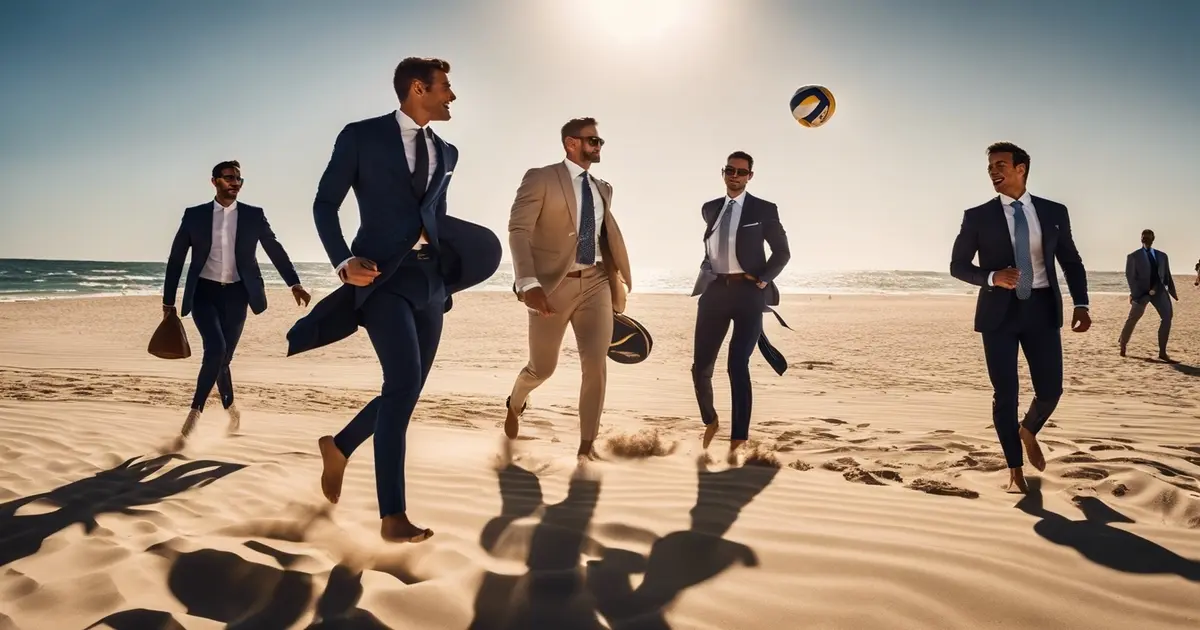
Building Client Relationships
Interview Process
The interview process is crucial in forming a solid foundation with potential clients. It's the first step in which sports lawyers can showcase their knowledge and expertise in the field. Clear communication and understanding of the client's needs are paramount during these sessions.
Sports lawyers must demonstrate not only their legal prowess but also their commitment to the client's success. This initial interaction sets the tone for the relationship, making it imperative to establish trust and confidence early on.
Maintaining Relationships
Regular communication is critical to sustaining long-term relationships with clients. Sports lawyers should keep their clients informed about the progress of their cases and any developments that may affect them. Transparency in all dealings reinforces trust and ensures clients feel valued and understood.
Ethical representation is another cornerstone of lasting client relationships. Clients expect their lawyers to act in their best interests, adhering to the highest standards of integrity and professionalism. By doing so, sports lawyers safeguard not only their clients' rights but also their reputations.
Referrals and Reputation
Referrals play a significant role in growing a sports law practice. Satisfied clients are likelier to recommend their lawyer to others, expanding the clientele through positive word-of-mouth. Therefore, maintaining a good reputation within the sports community is essential.
A positive reputation stems from successful negotiations, fair contracts, and favorable client outcomes. These achievements contribute to a lawyer's standing in the industry, making them a preferred choice for athletes and sports associations seeking legal representation.
Career Outlook
Growing Demand
The sports industry is evolving rapidly, with contracts, endorsements, and intellectual property issues becoming more complex. This complexity has led to a growing demand for sports lawyers. These legal professionals navigate the intricate landscape of sports law, ensuring that agreements are fair and compliant with current regulations.
They play a crucial role in negotiating deals and resolving disputes that can impact an athlete's career or an organization's reputation. As the stakes in professional sports continue to rise, so does the need for skilled sports lawyers.
Career Paths
Sports lawyers have multiple career paths. Many work in specialized sports law firms representing athletes, coaches, and sports entities. Others find opportunities working directly for sports organizations or leagues, providing legal advice on various issues, from player contracts to sponsorship agreements.
Becoming in-house counsel for a professional team is another viable path. In this role, lawyers handle all legal matters related to the team's operations. This position requires a deep understanding of sports law and their employers' specific challenges.
Impacting the Industry
Sports lawyers do more than negotiate contracts; they ensure fair practices within the sports industry. By advocating for athletes' rights and working towards more transparent and equitable operations, these professionals contribute significantly to the integrity of sports. Their expertise helps protect the interests of all parties involved, from individual players to major leagues.
Their work often sets precedents that shape future policies and practices within the industry. As such, sports lawyers not only navigate current legal landscapes but also influence the direction of sports law in the years to come.
Summary
Embarking on a career as a sports lawyer means diving into a dynamic field where law meets the thrilling world of sports. You've seen the roadmap: from understanding the difference between sports lawyers and agents to mapping out your education journey, gaining crucial experience, honing vital skills, specializing in your expertise, and mastering the art of building client relationships. The career outlook for sports lawyers is promising, thanks to the ever-evolving nature of sports and its legal needs. Your success hinges on blending passion with proficiency, ensuring you stay ahead of the game.
Now's your time to shine. Leverage your knowledge, skills, and passion for law and sports to carve out a rewarding career in this niche field. Keep pushing boundaries, stay informed about the latest trends and legal updates in sports, and never stop networking. Your dream job as a sports lawyer isn't just a possibility—it's within reach if you play your cards right. Ready to make your mark? Let's get started.
Frequently Asked Questions
Related Post
Sports Organization Governance Lawyer
Navigating the complex world of sports organization governance requires a specialized skill set that blends legal expertise with a deep understanding of the sports industry's unique dynamics, including administrative law and critical issues.
Read MoreSports Law
Sports law is like diving into the playbook of the sports world, where the rules of the game extend far beyond the field.
Read MoreMedical Innovation Lawyer
Have you ever wondered how groundbreaking medical technologies from innovative healthcare and health technology companies navigate the complex web of legalities with sophisticated health law technology to reach the market as a healthcare innovator?
Read MoreBioethics Lawyer
In the ever-evolving landscape of medicine and technology, where groundbreaking advancements can sometimes blur the lines of ethical boundaries, bioethics lawyers stand as crucial navigators.
Read MoreHealth Insurance Lawyer
Over 8% of Americans find themselves wrestling with health insurance claims and fraud issues each year, revealing a complex system of laws and benefits that often feels like it's designed to be confusing.
Read MoreIP Litigation Lawyer
In the fast-paced world of innovation and creativity, protecting your intellectual property (IP) has never been more crucial. Enter the IP litigation lawyer, a specialized legal eagle who swoops in to defend your inventions, brand names, and artistic works from infringement and misuse.
Read More